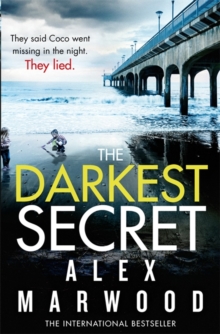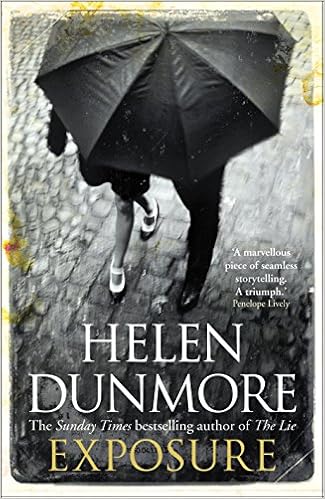It seems from other reviews, both by readers and professional critics, that most people have enjoyed Nicholas Searle's first novel, The Good Liar. That puts me in a minority: while I felt The Good Liar was a confident debut, I found much of the story rather flat and even dull. I'd be hard-pushed to find much wrong with Searle's actual prose - his sentences are well-crafted and his descriptive details well-observed and well-chosen - but I found it impossible to really immerse myself in this book right up until the last quarter of it, when the plot takes an abrupt and surprising turn. Frustratingly, that last quarter did give some real glimpses of how good the novel could have been.
The book begins with Roy, an eighty-something man, meeting Betty, a woman perhaps five or so years younger but still full of zest for life, for a pub meal arranged through an internet dating site. We're told almost immediately that Roy is a con-man, and looking for a well-off widow whose money he can make off with, and after that there are alternating chunks of narrative dealing with the relationship between Roy and Betty after he has moved into her home, and flashbacks to incidents from Roy's past. Where the present-day sections become interesting is the point at which we start to realise that Betty might know more about Roy than he thinks. How does Betty know Roy is a serial fraudster, and which of the pair will win their battle of deception?
This strand of the plot is, for me, the most successful. Betty is a smart, wily woman, yet there is something insidiously manipulative and sinister about Roy that almost makes him seem like an elderly Tom Ripley at times.
Unfortunately, the flashbacks to Roy's earlier years are, for the most part, infinitely less engaging. Beginning with one of his most recent scams and working backwards to earlier and earlier snapshots of his criminal life, they simply didn't hold my interest. The detailed mechanics of how Roy cheated a bunch of other tedious middle-aged men in a shady investment scam were utterly dull, as were his brief relationship with a woman in the 1970s whose bank account he empties, the Soho sex shop he tries to open with a non-existent loan and even the incident in the 1960s in which he assumes another man's identity altogether. Clearly these episodes are intended to build a picture of the type of man Roy is - callous, misogynist, cunning, wholly selfish and disdainful of others - and in this regard they succeed, but we could have learned these things about Roy in half the time, and indeed could simply have guessed most of them. The fact that Roy is a manipulative psychopath is obvious very early on, but this alone is not enough to make him an interesting character, and frankly that's all there is to him for most of the book. Only when we get right back to Roy's early twenties and finally his teens in the 1940s do we learn anything genuinely revealing about him, and even then, we only learn what he was as a youth, rather than why.
Betty, whose past is also addressed in this final quarter of the book, is infinitely more fascinating than Roy, and it's a great pity her character plays second fiddle to his for most of the story. I was more gripped by Betty's part in the story than Roy's, more interested in what made her the woman she became. As I finally reached the last couple of chapters, I had high hopes for a confrontation to end all confrontations, but even after the one truly gripping section of the story, the actual ending left me with a distinct sense of anticlimax.
I wanted so much to like this book, as the premise of it is fascinating and I enjoyed seeing two older characters leading a novel in this way - particularly Betty; there are frankly not enough heroines in their eighties. But while it did show some promise, I had to force myself to keep reading and was, overall, left dissatisfied. Not a book for me, sadly.
Do read some other reviews, though, as I'm far outnumbered by people who loved this book, and it's perfectly possible that you will too.
Many thanks to the publisher for providing me with advance copy of The Good Liar via NetGalley in exchange for an honest review.


